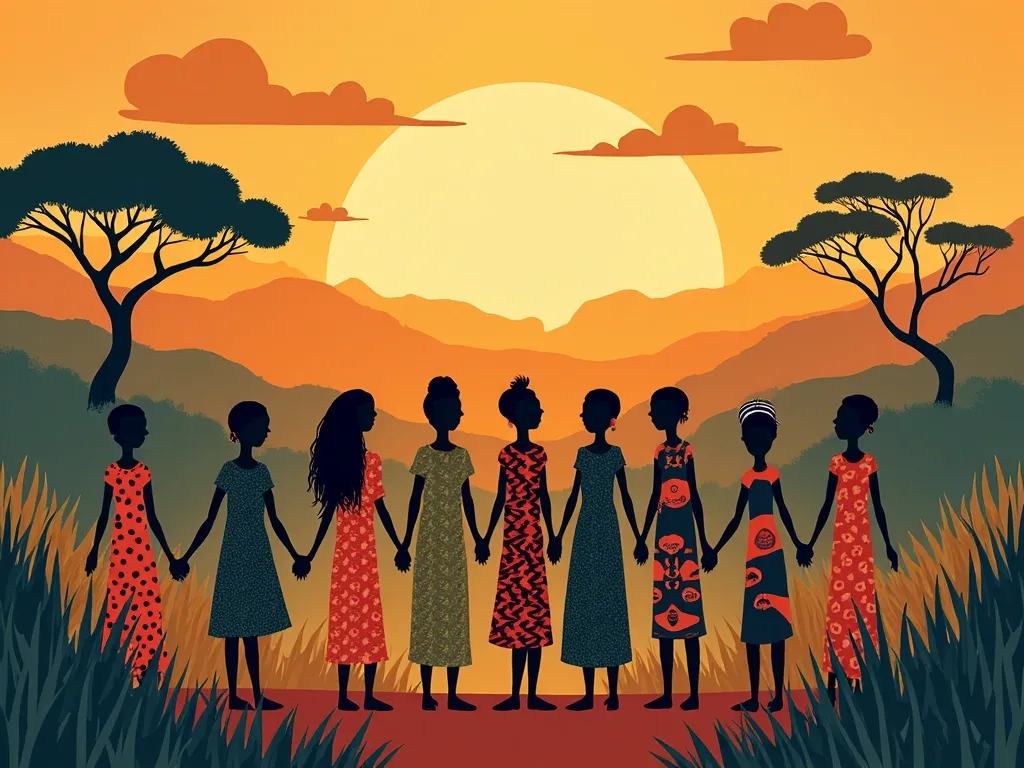In a world where individualism often triumphs over community, and competition replaces cooperation, it is easy to lose a sense of deeper connection with others. “I am because we are” – this is the essence of the Ubuntu philosophy that has shaped communities in South Africa for centuries. It is not just a theoretical concept, but a practical way of life that can fundamentally change our relationships and society.
Have you ever wondered how to bring more harmony and mutual support to your environment? Ubuntu offers not only an inspiring perspective, but concrete tips on how to build a community based on caring for others. In this article, you will discover how kindness, empathy and shared responsibility can become part of your daily life. “A person is a person through other people” – this African wisdom can be the key to healthier relationships and a more united society.
Meaning and etymology of the term Ubuntu
When I first heard the word “Ubuntu,” I thought it was just the name of an operating system. However, when I delved deeper into its meaning, I discovered something much deeper. Ubuntu comes from the Bantu languages of southern Africa. and is a philosophy that defines the essence of humanity. "Umuntu ngumuntu ngabantu" - a person is a person through other people. This simple, yet profound truth changed my way of perceiving interpersonal relationships.
Sometimes I wonder, “Can I be fully myself without others?” One might ask, “Why not? You are an independent individual!” But the philosophy of Ubuntu contradicts such an individualistic approach. According to this philosophy, my humanity is inextricably linked to the humanity of others. I am because we are – this concept of interdependence reminds me that my decisions and actions affect the entire community. It is not just an abstract idea, but practical wisdom that shapes the daily lives of many African communities, teaching compassion, solidarity and mutual respect.
The main assumptions of the Ubuntu philosophy
The Ubuntu philosophy is not just any concept – it is a holistic approach to life that puts humanity and community first. In a world where everyone is pulling in their own direction, Ubuntu reminds us that no man is an island. This African wisdom teaches us that man becomes man through other men.
When we are down, the Ubuntu philosophy encourages us to reach out to others instead of worrying about our own fate. Its main assumption is that the good of the community translates into the good of the individual. There is no denying that in today's world, such an approach seems to have less and less scope, but…
Ubuntu is also the art of seeing the humanity in everyone, regardless of differences. By treating others with respect, we build bridges instead of walls. A person is a person with people. – a person is a person through other people – this is the quintessence of this philosophy, which reminds us that we are all connected and responsible for each other. He who sows the wind, reaps the storm – that is why Ubuntu encourages us to sow kindness and goodwill.
Community and mutual care as the foundation
In the thicket of modern society, where individualism is often blooms like a lonely baobab in the savannah, the Ubuntu philosophy extends its roots deep into the fertile soil of community. Imagine society as a large beehive – each being, though seemingly independent, is part of a larger whole. Bzzzz – the sound of cooperation and mutual care fills the space, creating a harmonious symphony of human existence.
When one member of the community falls, the entire hive feels his suffering. Loot! – the fall of one sends ripples through all. Ubuntu reminds us that humanity can only be fully realized through relationships with others. As they say in African tradition:
"I am because we are"
– this simple, yet profound truth is the root from which the entire philosophy of mutual care grows.
The hive of our community cannot survive without the honey of empathy and compassion. Every gesture of kindness, every very quiet a word of support, every helping hand strengthens the structure of the social fabric. In an era of digital isolation, the Ubuntu philosophy reminds us that true human development does not occur in a vacuum - it is in the space between people, in this invisible thread of connections, that true humanity and dignity are born.
Modern Applications of the Ubuntu Philosophy
The Ubuntu philosophy is influencing modern approaches to managing organizations today. Leaders use it to build teams based on mutual respect and cooperation. This makes employees feel more valued and are more actively involved in everyday tasks.
In education, teachers use Ubuntu principles to create a supportive environment for students. Children learn that their success depends on the success of the entire group. This approach develops empathy and reduces competition in school classrooms.
Aid programs in Africa are often based on the Ubuntu philosophy. Humanitarian organizations work with local communities rather than imposing ready-made solutions. Locals actively participate in projects and decide on their own needs.
"I am because we are" – this principle also inspires modern social movements around the world. Social justice activists draw on Ubuntu to emphasize our interdependence. The problems of one group affect all members of society.
Diplomats and mediators use the principles of Ubuntu to resolve international conflicts. Instead of isolating the parties to the conflict, they encourage them to dialogue and seek solutions together. This model works especially well in societies divided by ethnic conflicts.
Ubuntu – a philosophy that changes the world
The philosophy of Ubuntu from South Africa represents extraordinary wisdom that can revolutionize our approach to social life. This concept, based on "human kindness," expresses a profound truth about our interdependence.
The most important points of the Ubuntu philosophy are:
- Man becomes man only through other men.
- Community is a fundamental value of human existence
- Mutual care builds stronger societies
- Giving good to others enriches both the giver and the receiver.
Ubuntu is not just a philosophy. It is a way of life.
In a world of increasing individualism, the ideas of Ubuntu remind us of a fundamental truth – we are connected. Our humanity is only realized through “community” with others.
We invite you to consider how the Ubuntu philosophy can enrich your life and relationships. Share your thoughts in the comments or join our community interested in the wisdom of different cultures around the world. Together we can build a better future!
Frequently asked questions
What exactly does the term “Ubuntu” mean?
Ubuntu is a South African philosophy that means “I am because we are” and emphasizes fundamental human interdependence. As the African proverb goes, “If you want to go fast, go alone. If you want to go far, go together.”
How can you practice the Ubuntu philosophy in your daily life?
Practicing Ubuntu involves showing kindness and care towards others, building community, and recognizing that our actions affect the environment. “A person is a person through other people” – this principle reminds us that we are most fully realized in relationships with others.
How does Ubuntu differ from Western philosophies of individualism?
Ubuntu values community and interdependence over individualism, while Western philosophies often glorify individual independence. As Desmond Tutu put it, “The Ubuntu person is open and accessible to others, not threatened by the ability and goodness of others.”
What is the importance of Ubuntu in resolving social conflicts?
Ubuntu has played a key role in the reconciliation process in post-apartheid South Africa, promoting forgiveness and repairing relationships instead of revenge. “Forgiveness liberates the soul. It removes fear. That is why forgiveness is such a powerful weapon” – these words of Nelson Mandela show the transformative power of this philosophy.
Can the Ubuntu philosophy be applied to businesses and organizations?
Yes, more and more organizations are adopting the principles of Ubuntu, creating corporate cultures based on cooperation, empathy, and the common good instead of competition. “The hand that gives is the hand that receives” – this African proverb well reflects the benefits of this approach in the business environment.







